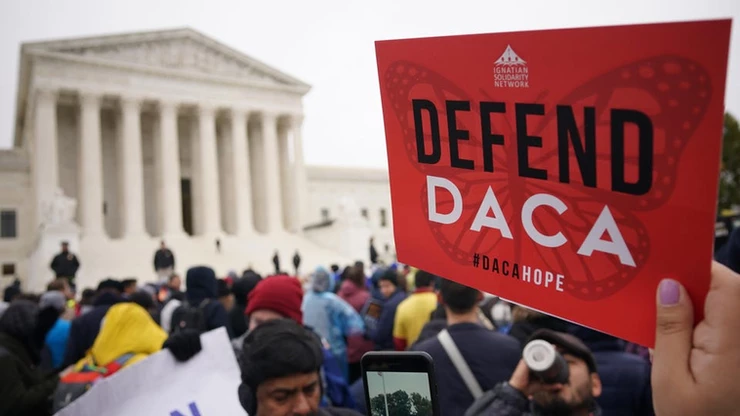Deferred Action for Childhood Arrivals (“DACA”) is a program created in 2012 by then-president Barack Obama. It provides a way for undocumented immigrants who came to the U.S. under the age of 16 to obtain work authorization and avoid deportation for two years. Although it does not provide a path to U.S. citizenship, DACA recipients can apply for renewal every two years. According to U.S. Citizen and Immigration Services, there are about 616,000 active DACA recipients in the U.S.
Because immigration programs have traditionally been initiated by Congress, not the President, DACA has been the subject of many lawsuits over the years, with mixed results. In July of 2021, the Honorable Andrew Hanen in Texas concluded that President Obama had exceeded his authority when he created the program, and therefore DACA is unlawful. Judge Hanen issued an order preventing the Biden Administration from processing any new DACA applications. President Biden’s administration has stated an intention to appeal the order, but in the meantime, they will abide by this order. On September 10, 2021, the Biden administration filed their appeal in the 5th Circuit Court of Appeals.
What does this mean for people enrolled in DACA?
This recent court ruling does not affect current DACA recipients. Current recipients remain protected from deportation and are still authorized to work. They may also continue to apply for renewal of their status for the time being. However, if a recipient’s DACA status has been expired for more than a year, they will be considered a first-time applicant and subject to Judge Hanen’s order.
What does this mean for new DACA applicants?
What does this mean for new DACA applicants?
Judge Hanen’s order prevents the Department of Homeland Security (DHS) from processing first-time DACA applications, however they can still accept applications. Because of this, DHS has canceled all biometrics appointments that were scheduled for new DACA applicants. However, first-time applicants who were approved or received their permits as of July 16, 2021 will be allowed to complete the application process and obtain DACA status, if eligible.
What does this mean for DACA recipients who want to travel outside of the U.S.?
What does this mean for DACA recipients who want to travel outside of the U.S.?
“Advanced parole” is a feature of DACA that allows recipients to apply to travel outside of the U.S. for a few different reasons including education, employment, or humanitarian pursuits. Judge Hanen’s order does not affect advanced parole, so current DACA recipients can still apply for this benefit. Recipients who have traveled outside of the U.S. under this benefit can still return, and those recently granted advanced parole but have not traveled can still do so.
Conclusion
It is important to note that this is an evolving area of law that is frequently changing. Also, it is more important than ever to keep renewing your DACA status if you are a current recipient or if your DACA status recently expired. Martinez Immigration has in DACA and can guide you through understanding all of your immigration options.



